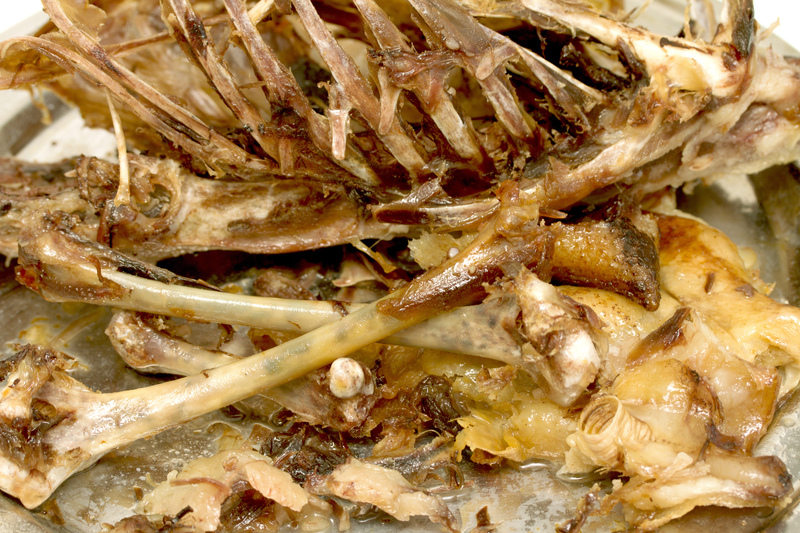Smart Methods for Disposing of Masks and Gloves Responsibly
The global pandemic taught everyone the importance of personal protective equipment (PPE) like masks and gloves. However, as millions of disposable masks and gloves are used daily, a new challenge has emerged: how to dispose of these items responsibly without harming the environment or public health. In this comprehensive guide, we explore innovative and sustainable techniques for discarding masks and gloves, highlight the risks of improper disposal, and provide practical steps for both households and businesses seeking eco-friendly PPE waste solutions.

Understanding the Importance of Responsible Mask and Glove Disposal
Masks and gloves are designed to prevent the spread of disease, but when not properly discarded, they become environmental hazards. Discarded PPE can clog sewers, pollute water bodies, and pose threats to wildlife. Furthermore, improperly handled PPE waste may carry pathogens that endanger public health.
The responsible disposal of masks and gloves is critical for:
- Protecting the environment from pollution
- Preventing the spread of infectious diseases
- Ensuring the safety of waste management workers
- Minimizing harm to marine and terrestrial wildlife
Common Problems with PPE Waste
The Environmental Toll of Disposable Masks and Gloves
Single-use masks and gloves are usually made from materials like non-woven polypropylene and latex or nitrile. These materials aren't biodegradable, meaning they persist in the environment for years. When thrown carelessly, masks and gloves contribute to:
- Microplastics in oceans: Masks break down into tiny plastic particles that adversely affect aquatic animals.
- Land pollution: Gloves and masks litter parks, sidewalks, and green spaces, and can suffocate or trap small animals.
- Blockages in drainage systems: PPE can clog sewer grates, leading to urban flooding.
Health Risks from Improper PPE Disposal
Personal protective equipment often comes into contact with potentially infectious biological material. Improperly discarding used masks and gloves exposes:
- Sanitation workers to pathogens
- Children and adults to accidental contact with contaminated waste
- The broader community to indirect transmission of diseases
Best Practices for Disposing of Masks and Gloves Responsibly
1. Always Treat Used Masks and Gloves as Potential Biohazard
Regardless of whether you are ill or not, it's prudent to assume that used PPE may harbor contaminants. This mindset helps ensure meticulous disposal habits.
2. Do Not Litter
Never throw masks or gloves on streets, parking lots, or public spaces. Littered PPE is an eyesore and can spread diseases.
3. Use the Correct Disposal Methods
- Household Waste: Double-bag used masks and gloves before placing them in the general trash. This provides an extra layer of protection for waste handlers.
- Dedicated PPE Bins: Some municipalities and businesses provide separate bins for PPE. Look for clearly labeled disposal areas in public spaces.
4. Never Recycle Single-Use Masks and Gloves
Disposable masks and gloves are not designed for conventional recycling streams. Placing them in recycling bins contaminates other recyclable materials and complicates the sorting process.
5. Practice Safe Handling at All Times
- Avoid touching the outside of a used mask or glove.
- Remove PPE carefully and dispose of it immediately after use.
- Wash hands thoroughly with soap and water or use an alcohol-based sanitizer after handling.
Smart Innovations in Mask and Glove Disposal
1. PPE Collection and Recycling Programs
Some companies and local governments have launched specialized programs to recycle PPE waste. For example:
- TerraCycle PPE Zero Waste Boxes: These boxes allow individuals and businesses to collect used PPE for professional recycling. Once full, the box is shipped back to TerraCycle, where the items are sorted and processed into reusable materials.
- Municipal Pilot Programs: Cities around the world are experimenting with dedicated mask and glove collection bins which are then sent to specialized waste management facilities.
2. Biodegradable PPE
Researchers and manufacturers are now developing masks and gloves made from biodegradable materials such as plant fibers or compostable bioplastics. Using these products dramatically reduces environmental impact, although proper disposal is still necessary.
3. Upcycling Mask and Glove Waste
Innovative projects are finding creative ways to repurpose used PPE. For instance, one initiative turns mask waste into paving materials for roads, while others convert glove material into reusable construction products. While still experimental, these methods could revolutionize the disposal of single-use PPE.
Responsible Mask and Glove Disposal in Different Settings
In Homes
- Keep a dedicated covered bin for disposing of used PPE.
- Store used items in a sealed bag before placing in household trash to prevent contamination.
- Educate all family members, especially children, about the importance of proper mask and glove disposal.
In Workplaces
- Set up separate waste bins for PPE in accessible locations, labeled clearly.
- Provide employees with instructions and reminders about correct disposal habits.
- Offer training on the dangers of improper PPE handling and encourage prompt hand washing after disposal.
In Public Places
- Public authorities should install dedicated bins for mask and glove disposal in high-traffic areas.
- Prompt, visible signage helps remind citizens to use these bins.
- Regularly empty and sanitize these bins to reduce the risk of contamination.
Guidelines and Regulations for PPE Waste Disposal
Many countries and cities have released specific guidelines for the disposal of used masks and gloves to protect both the environment and sanitation workers. General advice includes:
- Never flush masks or gloves down the toilet.
- If you are sick with a transmissible illness, place PPE in a sealed bag before discarding it with regular trash.
- If available, use community drop-off points for PPE waste.
- Consult your local health department website for updates on recommended disposal methods.
Tips for Reducing PPE Waste
1. Opt for Reusable Masks and Gloves Where Appropriate
Reusable cloth masks and washable gloves are practical alternatives for the general public (excluding medical or high-risk environments). These options produce far less waste when properly sanitized after each use.
2. Buy Only What You Need
Over-buying and stockpiling disposable PPE adds unnecessary strain on the waste stream. Purchase the right amount for your household or organization's needs.
3. Educate Others
Share information about smart methods for disposing of masks and gloves responsibly with your community to collectively reduce improper discarding.
4. Support Eco-Friendly Innovations
Encourage the adoption of biodegradable and recyclable PPE in your workplace, school, or local government, and advocate for the improvement of waste disposal infrastructure.
The Role of Government and Policy in PPE Waste Management
Governments play a vital part in shaping responsible mask and glove disposal behavior. Effective strategies include:
- Policy-making: Enacting regulations that require businesses and institutions to provide PPE disposal bins and educate the public.
- Incentivizing recycling: Supporting research and subsidizing companies using innovative recycling methods for PPE waste.
- Awareness campaigns: Launching public information drives to highlight the dangers of PPE litter and the benefits of responsible disposal.

Frequently Asked Questions about Disposing of Masks and Gloves Responsibly
Can I recycle disposable masks and gloves in my home recycling bin?
No. Disposable masks and gloves are not accepted in standard recycling programs as they can jam machines and contaminate recyclable materials. They should go into the general waste, unless you're using a specialized PPE recycling service.
How should I dispose of masks or gloves used by someone with COVID-19?
Place the used PPE in a sealed plastic bag, tie it securely, and put it into the regular trash. Do not leave it unsecured or mix it with recyclables. Afterwards, wash your hands thoroughly.
What about compostable or biodegradable masks and gloves?
Biodegradable and compostable PPE should be disposed of according to manufacturer instructions. Most home composters are not suitable for these items unless explicitly indicated. Municipal industrial composting facilities may be required.
Conclusion: Every Small Action Counts
Smart methods for disposing of masks and gloves responsibly are essential for preserving our environment and safeguarding public health. By following recommended waste management practices, supporting new recycling initiatives, and choosing eco-friendly materials, individuals and organizations can significantly reduce the adverse impact of PPE waste.
Remember: correct disposal of masks and gloves is not just a personal responsibility - it's a shared civic duty. Take the initiative, spread awareness, and ensure that your PPE helps protect people instead of polluting the planet.
For more insights into sustainable living and waste reduction, stay informed, share this guide, and join the global effort to keep our communities clean and safe.
